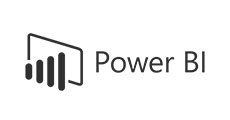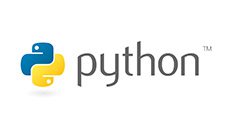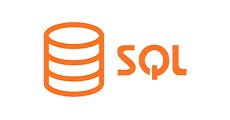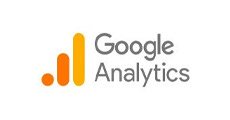-50% Discount on place reservation for 26/27 intake until February 28th!
Master in Business Analytics and Business Intelligence
A Master in Business Analytics focuses on studying the process of collecting, structuring and analysing the data available within a company, with the aim of optimising decision making. Students will learn how to use different tools for processing, analysing and visualising data, which will equip them with the necessary knowledge and skills to enable them to make data-driven decisions.
With the high-value technological knowledge and leadership skills that you’ll gain from the Master in Business Analytics, when you graduate you’ll be a professional with an in-depth knowledge of how to obtain and manage data, enabling you to take the best business decisions.
*Title pending favourable report from the Regional Evaluation Agency, pending verification resolution, implementation authorisation and approval of official status and registration in the RUCT.
Official degree issued by Universidad Europea de Madrid
| Campus-based | Alcobendas | 9 months, 60 ECTS | Start: October 2026 | Faculty of Economics, Business and Communication Sciences |
94%
Ninety-four percent of companies say data and analytics are important to the growth and digital transformation of their businesses, according to MicroStrategy.
58%
58% of companies have already hired a chief data officer and 23% say they are considering creating the position, according to MicroStrategy.
90%
65% of organizations plan to increase their investment in technology and hiring in the area of data analytics, according to MicroStrategy.
Tools
During the different modules of the curriculum you will learn to use professional tools applied to the different areas of analytics: programming, big data, artificial intelligence, visualization, web and social networks, project management, among others.
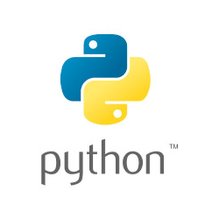
Free access to the Python course
To get up to date, you can take CISCO's “Python Fundamentals” course. If you come from a technical background, you will be able to refresh concepts. Or, if you come from the business area, you can get started in programming. This course will help you improve your level and adapt to the pace of work and use of platforms throughout the program.
Boost your career by studying in Spain!
Check out our Official Master’s Degrees: MBA, Marketing, Digital Business and more!
Study plan
Study plan structure
Subject | Type | ECTS |
Data-driven organizations and business transformation | OB | 6 |
Data analysis-oriented programming | OB | 6 |
Data Analytics | OB | 6 |
Big Data and Cloud | OB | 6 |
Artificial intelligence | OB | 6 |
Marketing and Customer Analytics | OB | 6 |
Business Intelligence & Industry Applications | OB | 6 |
Business Analytics Project Management | OB | 6 |
External academic internships | PE | 6 |
Master's Degree Final Project | TFM | 6 |
Syllabus
Data-driven organizations and business transformation
- Business Transformation Strategies
- Data Management and Technology
- Data Analysis for Strategic Decision Making
- Disruptive Technologies and their Impact on Business
- Implementation and Change Management
- Innovation and Digital Transformation in Organizations
Data analysis-oriented programming
- Python Programming Fundamentals for Data Analytics
- SQL and Relational Database Management
- Data Manipulation and Cleansing with Python
- Automation and ETL Processes
Data Analytics
- Applied Statistics and Predictive Modeling
- Descriptive, predictive and prescriptive models
- Exploratory analysis
- Clustering, Regression, Time Series and Machine Learning
- Optimization and decision models
- Visualization and communication of insights
Big Data and Cloud
- Fundamentals of Big Data and Data Architecture
- Big Data Platforms and Tools
- Data Lakes and Data Warehousing in the Cloud
- Cloud Tools for Big Data
- Security and Governance in Big Data Environments
Artificial intelligence
- Introduction to AI: context and trends.
- Artificial intelligence applied to natural language processing.
- Neural Networks and Deep Learning
- Generative AI
- Agent-based AI
Marketing and Customer Analytics
- Fundamentals of Data Driven Marketing
- Customer Insights and Data-Driven Segmentation
- Behavior Analysis in Websites and E-commerce
- Analytics in social networks and paid media
- Customer Experience Analytics
Business Intelligence & Industry Applications
- Business Intelligence and Decision Making
- Financial and Insurance Analytics
- Telecommunications and Energy: Network Analysis and Resource Optimization
- Distribution and Logistics: Supply Chain Analytics
- CRM
- Cybersecurity
Business Analytics Project Management
- Project Planning and Management in Business Analytics
- Evaluation and Control of Analytical Projects
- PMI Methodology and Agile Methodologies
- Team and People Management
- Legal, Ethical and Privacy Perspective
- Documentation and Communication of Project Results
External academic internships
Master's Degree Final Project
Internships
It is estimated that over the next five years there will be a significant shortage of qualified professionals in this discipline in all areas of business. For this reason, many of the consultancies working on analysing this trend recommend that companies actively seek to establish links with universities where these programmes are taught.
The Universidad Europea's Master in Business Analytics trains graduates and professionals in data processing and analysis to support business decision-making. You'll receive training that's 100% practical and business-oriented, where you'll explore real-life case studies in the following areas: finance, marketing, logistics, risk, insurance and human resources.
Professional Internships
Internships are a key element of your training. Gaining experience after learning skills during your degree is the best way to enter the job market. There are two types of internships: curricular (included in your curriculum) and extracurricular (which you can do on a voluntary basis).
To take part in curricular internships in companies, you must have passed 50% of the credits and enrolled for the subject before starting the internship. These internships are conducted with monitoring by the company and by the internship professor, as well as intermediate and final assessment reports.
If you want to gain more work experience before finishing your university training, you can complete extracurricular internships. You may complete an extracurricular internship during any academic year, but remember that internships are complementary to your studies, so the more knowledge you have acquired over the course of your degree programme, the better you will be able to benefit from your internship experience.
Employability
Professional Opportunities Offered by the Master's Degree
Career opportunities
- Analyst and Consultant
- Data Scientist
- Business Intelligence Analyst
- Project Manager
- Business Manager
- Chief Data Officer (CDO)
Partner companies
On the Master in Business Analytics programme we have an extensive portfolio of partner companies with links to business analytics, and professionals from major companies who are involved in teaching on the master's degree, bringing the student closer to professional realities through the analysis of real-life cases. Some of these are:
- INNOVA.
- DataCentric.
- Gain Dynamics.
Admissions
Start your future at Universidad Europea
You can become a student at Universidad Europea in three easy steps.
1
Admission exams
Start your admission process by calling +34 918257503 or request information and our advisors will contact you.
2
Place reservation
Once you have been admitted, secure your place by paying the reservation fee.
3
Enrollment
Submit the required documents to formalise your enrollment.
Scholarships and financial aid
We want to help you. If you want to study at Universidad Europea, you will have at your disposal a wide selection of own and official scholarships.
Credit recognition and transfers
You don’t have to stick with something you don’t like. That’s why we’ve designed specific plans for credit recognition and transfers.
Request your online credit recognition review, transfer your academic file and start studying at Universidad Europea.
Incoming student profile and degree pathways
Any professional interested in developing exceptional skills that are in high demand in the business environments of today and of the future. Students on the master’s programme are:
- Graduate professionals who would like to deepen their knowledge and take a qualitative leap in their profession by entering the world of business analytics. In some cases, they may be professionals looking to obtain a master's degree and certifications in order to change company or sector, or to move into a new position in the firm they're currently working for.
- Others are recent graduates who want to delve deeper into the field of business analytics and improve their positioning on the job market by completing the master's degree and obtaining the professional certifications that we offer.
Faculty
Our teaching staff
- Victor Diaz
Director in Data & Analytics Strategy at Accenture, expert in definition and operationalization of analytical transformation programs for large companies, including the definition of the analytical strategy, the identification and prioritization of analytical use cases with business value, the operational and organizational model for the correct management and governance of information and analytical solutions, the technological architecture that supports the transformation and the roadmap for the deployment of all these elements, with multi-industry experience. - Christian Vladimir Sucuzhanay Arévalo
Since I was 20 years old, I have created projects, partnerships, companies in various fields and in different countries, which has made me an entrepreneur with leadership, management and decision-making skills.
I have been teaching for several years at the European University, in the subjects of: Big Data Projects I, II, concurrent and distributed programming, entrepreneurial leadership, statistical programming languages, all related to new technologies, Big Data and entrepreneurship. Official certificate in Google Cloud. - Sol Lumbreras
Sol Lumbreras has twenty years of experience in credit risk and more than ten years in the development of predictive models. Oriented to data as the main source for decision making, mainly in the financial sector, she has developed her professional career in consulting and banking. She began her professional career at Bank of America and has since worked at Deloitte, Experian and Bankia. She is currently a manager in the Retail Risk Department at Caixabank. - Alfredo Loire
Alfredo holds a degree in Computer Science from the Universidad de Oriente Cuba and a degree in Computer Engineering from the Universidad Europea de Madrid and an Official Master in Artificial Intelligence Research from the UIMP certified by AEPIA. Professional experience since 2011, he has been actively working in software development and enterprise applications. He is an expert in Big Data architectures both on-premises and cloud and in Big Data ecosystem technologies for large-scale information processing and storage such as Hadoop, Spark, Kafka, MongoDB among others. Since 2019 he is part of the “Customer Advisory” team at SAS where as Solutions Architect. Alfredo also collaborates with SAS Academics and Education teams as a lecturer to teach analytics classes on SAS products (visualization, machine learning, MLOps) and open-source: Scala, Python and SQL. - Ignacio González de Aledo Castillo
Data Protection Delegate at Bnext. Graduated in Law and Journalism, and Master in Telecommunications Law, Data Protection, Audiovisual and Information Society Services by the Carlos III University of Madrid, he has an extensive experience in matters related to Digital Law and New Technologies, Privacy or Intellectual Property, having worked for large national and international law firms and consulting firms such as PwC or Écija. In addition, he has participated as a lecturer in universities such as Carlos III or Nebrija. - María B. Sánchez-Crespo Zamora
Mathematician, actuary and teacher. She has developed her professional career in technical and product departments building predictive models, analyzing and transforming data that help the decision making process of the insurance companies Multiasistencia, Ges Seguros and Abanca Seguros Generales. In terms of teaching experience, she has collaborated in the master's degree for the actuarial profession and, currently, she is a teacher of mathematics and computer science in secondary education. - Javier Poole
He currently works as Product Delivery Lead at Repsol's Data & Analytics Hub, with extensive experience in digital product management and innovation in the world of energy and infrastructure.
He is a Civil Engineer (UPM) and is certified in Digital Transformation by MIT. - Alberto Santos
More than 20 years of experience in areas related to Geographic Information technologies: The last 10 years creating, managing, growing and selling a company dedicated to data analytics for the real estate sector, uDA, where the Geo component of the data is critical. Previously founder and CEO of a company dedicated to training programmers in the Geospatial field. Previously director of Directions Magazine, the main online publication dedicated to the dissemination of news in the Geospatial sector. My early career was dedicated to hydrological and hydraulic engineering and forest fire simulation, always applying Geo developments for the production of the models. - Hugo Tamashiro
Director of analytical marketing at Mutua Madrileña whose main objective is to improve commercial results based on data. A specialist in information analysis and business processes, Professor Hugo Tamashiro's career has developed in the area of Marketing and sales in B2C environments with a special focus on customers. With more than 20 years of experience in different positions. - Nerea de la Peña
With a background in Digital Marketing and Web Analytics, she has developed her career in data analysis. She has worked in several leading companies in the digital sector, where she has held roles related to analytics and data management. This has allowed her to help clients optimize their digital strategies and improve their online performance by analyzing data and identifying opportunities for improvement. - Sandra Brotón
She currently works as Head of the Social Hub at Making Science, leading the management of large clients nationwide. With experience since 2012 in the field of social networks and going through different roles that offer her a broad vision, she consolidates herself as an expert in Paid Social.
She holds a degree in Journalism from the Complutense University of Madrid and has different specialization courses around social networks and digital marketing, as well as a master's degree in Google Marketing Platform (GMP). - Carlos Rodríguez Abellán
Lead Data Scientist with +6 years of experience in advanced analytics and artificial intelligence projects in companies such as Fujitsu, Telefónica, EY or Vodafone. He currently leads the development and implementation of NLP models in the Data Intelligence CoE at Fujitsu. By training, Degree in Telecommunication Technologies and Services Engineering (UPM) and MSc in Signal Processing and Machine Learning (UPM). He teaches Artificial Intelligence subjects in different universities. - Abilio Romero
Abilio Romero, trained as a Mathematical Engineer and currently Data Scientist Manager at Caixabank Business Intelligence. In my 7 years of experience I have worked in companies such as Coca Cola, Santander Bank and Orange, in addition to my experience as a teacher in various university trainings. On the other hand, founder of the channel Hablando en Data and participant in various initiatives in the world of data, such as collaboration with the NGO SoGoodData. - Mónica Tévar
I currently lead business analytics at Mutuactivos investment fund manager (Mutua Madrileña Group).
She has a degree in Statistics, a degree in Actuarial Science and Finance, and an Executive MBA. With more than ten years of experience in the financial field through different entities, involved in projects related to analytical CRM, commercial and business intelligence, and reporting. - Álvaro Vállega Moreno
Computer Engineer from the University of Alcalá (UAH) and Master in Cybersecurity from the Open University of Catalonia (UOC), currently works as a threat intelligence analyst, focused on the collection and analysis of data on current and potential attacks and threats that may pose a risk to the security of an organization or its assets. He has the Certified Ethical Hacker practical and has worked as a pentester for companies and consulting firms in the country.teacher of Cyberintelligence and Ethical Hacking in different universities,he has also been a speaker at events and workshops on cybersecurity. - Fernando Pavón
CEO and co-founder of GAMCO. Computer Engineer and PhD (with the thesis “Knowledge Generation based on Machine Learning and Application in Different Sectors”). MBA by EAE.
More than 20 years working in Artificial Intelligence, mainly Neural Networks, Genetic Algorithms, Case-Based Reasoning and natural language processing.
He has worked since 1997 in R&D departments (Ericsson, Telefonica and Chep) as development engineer, head of Artificial Intelligence and R&D department manager. He has created solutions in the industrial, home automation, energy, security, consumer, financial and communication sectors. - Francisco Retuerta de Lara
Agile Coach since 2006. Software engineer mainly focused on project management, requirements gathering and problem analysis/modeling. He has worked in the technology industry where he has developed great analytical skills and a great ability to break down complex problems and propose several solutions for them.
Frequently Asked Questions
What is Business Analytics?
Business Analytics is the discipline that focuses on collecting, structuring and analysing the data available within a company's systems through the use of different Big Data analytics technologies, with the aim of gathering relevant information that allows the organisation to optimise business decision-making.
What does a data analyst do?
A data analyst's main function is to gain an understanding of the data available within the company, organising and processing it by using different processing, analysis and visualisation tools such as SQL, Hadoop, Spark, Python, R, Tableau, etc., extracting relevant information to improve business decision making.
What do you need to study to be a data analyst?
Wondering how you can become a data analyst? The Universidad Europea’s Master in Business Analytics will enable you to acquire the necessary knowledge on data processing, analysis and visualisation tools that will allow you to become a data analyst. To do so, all you need is to hold an officially recognised post-graduate qualification.
Where can you study business analytics?
At the Universidad Europea you’ll be able to train as a data analyst, with an eminently practical programme led by professors with extensive experience in the field of business analytics, acquiring a knowledge of the key market tools used to process, analyse and view data such as SQL, Hadoop, Spark, Python, R, and Tableau. Furthermore, once you’ve acquired the necessary knowledge, you‘ll be able to do professional internships that allow you to put into practice the knowledge you have gained.





